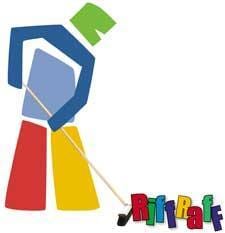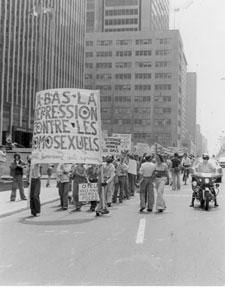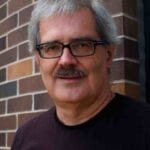
Credit: Photo courtesy of the Canadian Lesbian and Gay Archives
With less than three months to go before the 2010 Olympics open in Vancouver, activists are protesting the curtailing of civil liberties and the “cleansing” of poor and homeless people off Vancouver’s streets.
It’s not the first time authorities have attempted to suppress “undesirables” in the lead-up to an Olympics held in Canada.
With the RCMP’s help, police began cracking down on gays and lesbians a year before the 1976 Montreal Summer Olympics.
In February 1975, the relative quiet between police and gay establishments in Montreal came to an abrupt end with the raid on Sauna Aquarius. Thirty-five men were charged with being found in a bawdyhouse.
Over the next year, hundreds of men and women were arrested in gay baths, bars and washrooms.
In October 1975, police raided seven gay and lesbian bars. At Baby Face, a popular lesbian bar, anyone who did not have a piece of identification was taken to the station and only released if a parent or friend could provide proof of her age.
In November, police arrested about 80 men in the downtown core, including at the Limelight bar.
In 1976, police repression intensified. In January, police raided the Club Baths and arrested 34 men. Given a master key to open all the doors, the police preferred an axe, causing over $500 in damage.
In May, the raids took on a more “ferocious” character, according to gay historian Ross Higgins. The police raided the Neptune Sauna, where arrested men reported that police said they “were cleaning things up.”
That month the police again raided the Club Baths, the Sauna Cristal, three gay bars, and Jilly’s, where women were lined up against the wall and searched, and police came in armed with submachine guns.
As The Body Politic reported: “For a short period in late May and early June, all the baths in Montreal were closed… For a lot of men in Montreal, their first experience of the great Olympic ‘clean-up’ was the sight of a policeman’s axe crashing through the door of their room at the baths.”
Since Ottawa and Toronto were also scheduled to host some Olympic events, the RCMP also investigated gay groups there.
Leading up to the Olympics, the Club Baths in Ottawa was raided on May 22, 1976. This was the first raid of its kind in that city. Twenty-seven men were arrested.
As in Montreal, the police refused the master key and entered rooms by smashing doors. They also seized the club membership list, securing more than 3,000 names.
David Garmaise of Gays of Ottawa remembers: “Our feeling was that it wasn’t so much for surveillance – it was to clean up the gay scene so that tourists wouldn’t see it. In other words, if they could have closed the baths for the period of the Olympics they would have. They were raiding the baths as a way of attempting to do that.”
Gays of Ottawa president Denis LeBlanc stated in a press release on May 24, 1976: “We know from the chain of events themselves, from remarks made by policemen during their raid of the Neptune Baths, and from inside information which we have obtained from people with confidential information on Olympic security, that this is part of a concerted, national effort aimed at ‘cleaning up’ Canada for the Olympic Games,” he said.
“This effort is not directed solely at gay people. It is common knowledge that police forces have been visiting leftist groups and other organizations which might want to demonstrate during the Games,” he added.
“You are also aware of the stories from Montreal about drunks and winos being given sentences six to eight times their normal lengths in order to keep them off the streets. We have just returned from Kingston where the local prisons are full of drunks who have been given six-month sentences instead of the usual couple of days. Our information is that this cleanup extends from Québec City through to Toronto.”
In Toronto, the RCMP questioned gay activist Tom Warner, then president of the Gay Alliance Towards Equality (GATE) Toronto. Warner says that, in the 1970s, “we just took for granted” that we were under police surveillance.
In March 1976, Warner received a call at home from an RCMP officer in charge of security for the Olympics. Two officers later questioned him at GATE’s office and indicated that other gay organizations could expect similar visits in the near future.
The raids created major upheaval in gay and lesbian networks and in the emerging gay and lesbian communities in Montreal. As Paul-François Sylvestre argues, “Although the police launched a clean-up campaign in order to rid Montreal of its homosexual elements, the exact opposite was reached.”
An organization called the Comité homosexuel antirépression/Gay Coalition against Repression (CHAR) was set up with representatives from various Montreal gay groups bringing together French and English-speaking activists, lesbians and gay men, with sections of the left and the feminist movements. On Jun 19, more than 300 gays, lesbians and supporters joined in one of the largest demonstrations up to that point. It was organized by CHAR and protested pre-Olympic cleanup raids.
Demonstrators marched through downtown Montreal chanting: “À bas la repression policière!” (“Down with police repression!”).
CHAR’s activism led to the formation of L’association pour les droits de gai(e)s du Québec, which became the main organization fighting for human rights for gays and lesbians in Quebec.
Resistance to the Olympic repression also helped set the stage for resistance to future bar raids. When police raided Truxx bar in October 1977 and arrested 146 men, more than 2,000 gay men, lesbians and supporters took to the streets.
While the circumstances are different in the lead up to Vancouver’s 2010 Olympics, poor and homeless people and civil liberties are again under attack. Once again we need to resist the Olympic cleanup and stand in solidarity with those being attacked, to defend everybody’s civil rights together.
Gary Kinsman and Patrizia Gentile are the authors of The Canadian War on Queers: National Security as Sexual Regulation, just released from UBC Press. This column is drawn from research for that book.


 Why you can trust Xtra
Why you can trust Xtra


